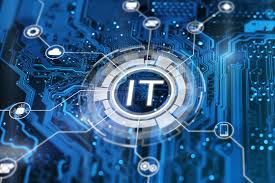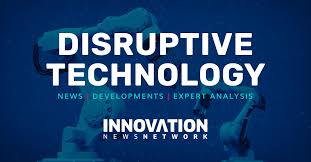The Impact of Information Technology on Modern Society
Information technology (IT) has revolutionised the way we live, work, and communicate in the modern world. From the advent of the internet to the development of artificial intelligence, IT has transformed every aspect of our lives.
Communication
One of the most significant impacts of IT is on communication. With the rise of email, social media, and instant messaging apps, people can now connect with each other instantly regardless of their location. This has made communication more efficient and convenient than ever before.
Business
IT has also reshaped the business landscape. Companies now rely on IT systems for everything from managing their operations to reaching out to customers online. E-commerce platforms have enabled businesses to expand their reach globally and conduct transactions with ease.
Education
In the field of education, IT has opened up new opportunities for learning. Online courses and digital resources make education more accessible to people around the world. Students can now access a wealth of information at their fingertips and engage in interactive learning experiences.
Healthcare
The healthcare industry has also benefited greatly from IT advancements. Electronic health records streamline patient care and improve medical decision-making. Telemedicine allows patients to consult with healthcare providers remotely, expanding access to healthcare services.
Challenges
Despite its many benefits, IT also presents challenges such as data security threats, privacy concerns, and digital divide issues. It is crucial for society to address these challenges proactively to ensure that everyone can reap the full benefits of information technology.
The Future
As technology continues to advance at a rapid pace, the future of information technology holds even more promise. Innovations like blockchain, Internet of Things (IoT), and machine learning are set to further transform how we interact with technology and each other.
In conclusion, information technology plays a vital role in shaping modern society. Its impact is profound and far-reaching, touching every aspect of our lives. By embracing technological advancements responsibly and ethically, we can harness the power of information technology for the betterment of society as a whole.
7 Essential Information Technology Tips for Enhanced Security and Efficiency
- Regularly update your software and operating systems to ensure security.
- Backup your important data regularly to prevent loss in case of system failure.
- Use strong, unique passwords for each of your accounts to enhance security.
- Be cautious when clicking on links or downloading attachments from unknown sources to avoid malware infections.
- Enable two-factor authentication whenever possible for an additional layer of security.
- Keep confidential information secure by encrypting sensitive data and using secure connections (HTTPS).
- Stay informed about the latest IT trends and developments to keep your skills up-to-date.
Regularly update your software and operating systems to ensure security.
It is crucial to regularly update your software and operating systems to maintain the security of your devices and data. Software updates often include patches for known vulnerabilities that hackers could exploit to gain unauthorized access. By staying up-to-date with the latest security updates, you can strengthen your defences against cyber threats and protect your information from potential breaches. Remember, proactive maintenance through regular updates is a fundamental step in safeguarding your digital assets in today’s interconnected world.
Backup your important data regularly to prevent loss in case of system failure.
It is crucial to regularly back up your important data to safeguard against potential loss in the event of system failure. By creating backups of your files and documents on external storage devices or cloud services, you can ensure that your valuable information remains safe and accessible even if your primary system encounters issues. This proactive measure not only provides peace of mind but also helps you recover quickly and efficiently in the face of unexpected data loss scenarios.
Use strong, unique passwords for each of your accounts to enhance security.
To enhance security in your online accounts, it is crucial to utilise strong and unique passwords for each account. By creating complex passwords that are not easily guessable and different for every account, you can significantly reduce the risk of unauthorized access to your personal information. Implementing this practice is a fundamental step in safeguarding your digital identity and ensuring the protection of your sensitive data across various online platforms.
Be cautious when clicking on links or downloading attachments from unknown sources to avoid malware infections.
It is essential to exercise caution when interacting with unfamiliar sources online to prevent the risk of malware infections. Avoid clicking on links or downloading attachments from unknown sources as they may contain harmful software that could compromise the security of your device and personal information. By staying vigilant and practising safe browsing habits, you can minimise the potential threats posed by malicious content and safeguard your digital well-being.
Enable two-factor authentication whenever possible for an additional layer of security.
Enabling two-factor authentication whenever possible is a crucial step in enhancing the security of your online accounts. By requiring a second form of verification alongside your password, such as a code sent to your phone or generated by an authenticator app, two-factor authentication adds an extra layer of protection against unauthorised access. This simple yet effective security measure significantly reduces the risk of cyber attacks and helps safeguard your sensitive information from potential threats.
Keep confidential information secure by encrypting sensitive data and using secure connections (HTTPS).
To ensure the security of confidential information in the realm of information technology, it is imperative to employ encryption techniques to safeguard sensitive data and utilise secure connections, such as HTTPS. Encryption adds an extra layer of protection by encoding data in a way that only authorised parties can access it, mitigating the risk of data breaches and unauthorised access. Secure connections, like HTTPS, establish a secure communication channel between users and websites, preventing potential eavesdropping or tampering with transmitted data. By prioritising encryption and secure connections, individuals and organisations can uphold the confidentiality and integrity of their valuable information in the digital landscape.
Stay informed about the latest IT trends and developments to keep your skills up-to-date.
Staying informed about the latest IT trends and developments is crucial to ensure that your skills remain relevant and up-to-date in the ever-evolving field of information technology. By actively seeking out new knowledge and staying abreast of emerging technologies, you can enhance your expertise, adapt to industry changes, and position yourself for success in the fast-paced world of IT. Continuous learning and staying informed not only sharpen your skills but also open up new opportunities for growth and advancement in your IT career.




